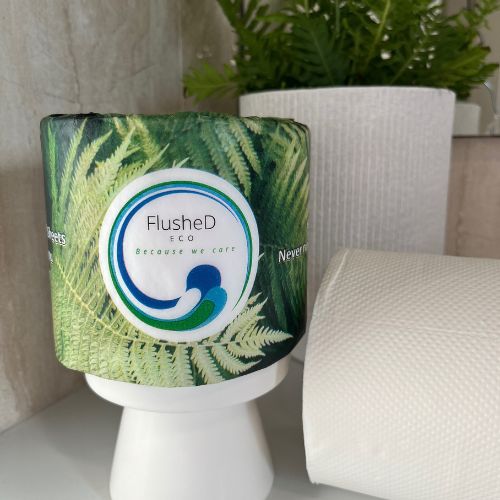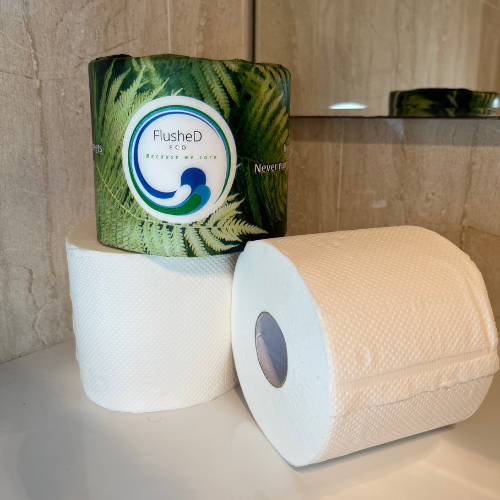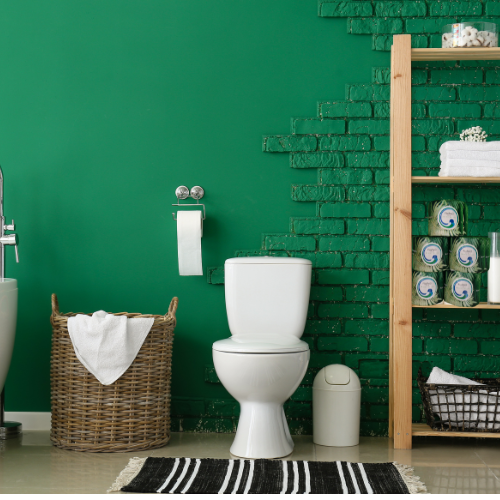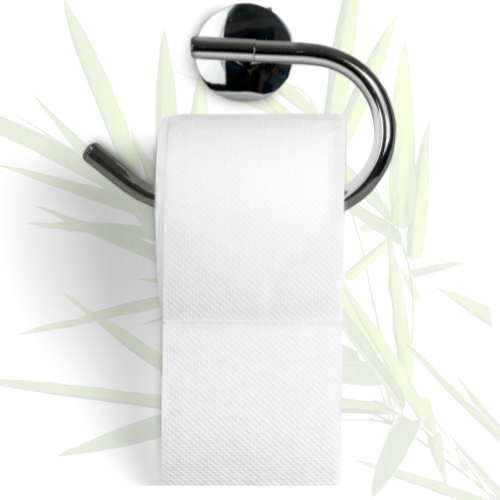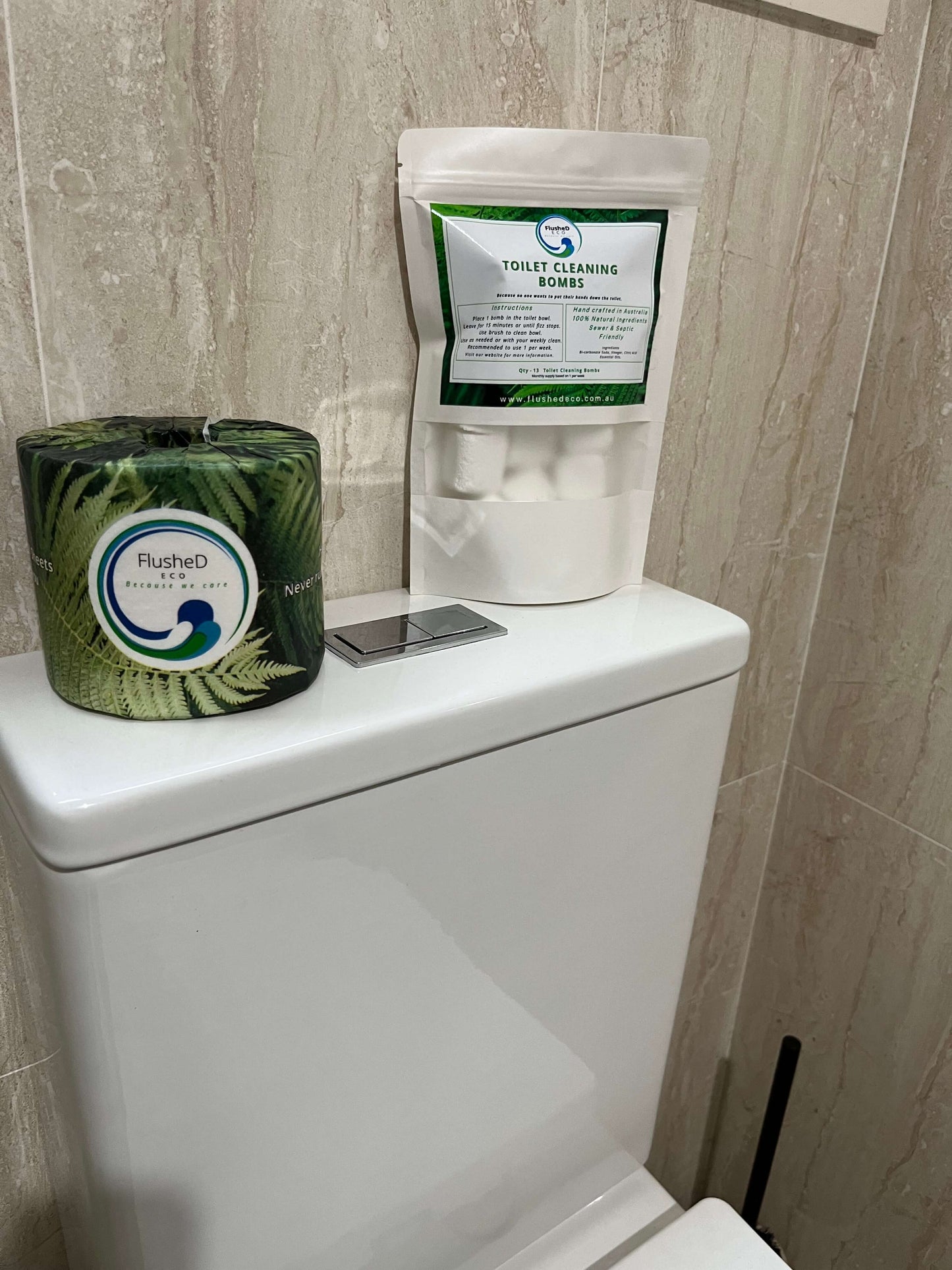Why choose bamboo toilet paper
Why we think Bamboo is best.
Consumers are becoming more and more Eco-friendly conscience. When choosing the right products for their home or business the environment and sustainability is top of mind. 
Bamboo is a material that is slowly becoming more and more popular as a more sustainable option with bamboo toilet paper being a hot topic for consideration.
As plumbing experts, we believe that currently, Bamboo is the better alternative when it comes to toilet paper and your sewer pipes but there are so many other benefits to this green stick like beauty.
Here are just a few facts we think you will find interesting.
Bamboo toilet paper facts
- Bamboo toilet paper is also known for being soft and strong, which makes it an excellent alternative to traditional toilet paper. Additionally, it is usually biodegradable and can be safely flushed down the toilet without causing any harm to the environment.
- It’s great alternative for those who want to be more environmentally conscious while also keeping their plumbing systems in good condition.
- Bamboo toilet paper is made from a fast-growing and renewable resource, making it a more sustainable option compared to traditional toilet paper made from trees.
- Bamboo is naturally antibacterial and hypoallergenic, which can make it a gentler option for sensitive skin.
- Bamboo toilet paper is typically softer and more absorbent than traditional toilet paper, which can result in a more comfortable and effective cleaning experience.
- Bamboo toilet paper is biodegradable and can be safely flushed down the toilet without causing harm to the environment or your plumbing system.
- Bamboo toilet paper often comes in larger rolls, which can result in fewer roll changes and less waste.
- Bamboo toilet paper is typically free of harsh chemicals, dyes, and fragrances, which can make it a safer and healthier option for both people and the environment.
- Bamboo is naturally resistant to pests and does not require pesticides or fertilizers to grow, which can help reduce pollution and chemical use.
- The production of bamboo toilet paper typically uses less water and energy compared to traditional toilet paper production, which can result in a smaller environmental footprint.
- Bamboo toilet paper is often packaged in biodegradable or recyclable materials, further reducing its environmental impact.
- By choosing bamboo toilet paper, you can support sustainable and ethical business practices, as many brands prioritize fair labour and environmental stewardship in their production processes.
- Bamboo toilet paper is often competitively priced and can be found at a similar cost to traditional toilet paper options.
- The natural strength and durability of bamboo fibres can make bamboo toilet paper more resistant to tearing or breaking, which can result in less waste and cost savings over time.
- Bamboo toilet paper is often packaged in bulk quantities, which can reduce the frequency of purchasing trips and ultimately result in less packaging waste.
- As bamboo is not a primary food source for pandas, producing bamboo toilet paper does not contribute to deforestation or harm to panda habitats.
- Using bamboo toilet paper can help reduce the overall demand for traditional toilet paper made from trees, which can help reduce deforestation and preserve natural habitats.
- Bamboo toilet paper can be composted in a backyard compost pile or added to municipal compost systems, further reducing its environmental impact and potential waste.
- Bamboo is naturally resistant to odors, which can make bamboo toilet paper a fresher and more hygienic option compared to traditional toilet paper.
- Bamboo toilet paper can be used in homes with septic systems without causing damage or excessive buildup, making it a more practical option for many households.
- The use of bamboo in toilet paper production can help promote sustainable agriculture practices, such as crop rotation and reduced chemical use.
- By choosing bamboo toilet paper, you can help reduce your personal carbon footprint and contribute to a more sustainable future for the planet.
- Bamboo toilet paper is often manufactured using environmentally friendly methods, such as closed-loop systems that recycle water and reduce waste.
- The use of bamboo toilet paper can help raise awareness about sustainable living and encourage others to make more environmentally conscious choices in their daily lives.
Bamboo is a versatile and sustainable material that offers many benefits for both the environment and consumers. Here are some general bamboo benefits.

- Sustainability: Bamboo is a highly renewable resource that grows much faster than trees and requires fewer resources to produce.
- Biodegradability: Bamboo products are biodegradable, which means they break down quickly in the environment and do not contribute to landfill waste.
- Strength and durability: Bamboo is a strong and durable material that can withstand wear and tear better than many other materials.
- Softness: Bamboo fibers can be made into a soft and comfortable material, which makes it a great option for clothing and bedding.
- Hypoallergenic: Bamboo is naturally hypoallergenic, which means it is less likely to cause allergic reactions than other materials.
- Antibacterial properties: Bamboo contains a natural antibacterial agent called "bamboo kun" that helps to keep it clean and fresh.
- Versatility: Bamboo can be used in a wide variety of products, including clothing, bedding, furniture, flooring, and more.
- Water efficiency: Bamboo requires much less water than many other crops, making it an ideal choice for regions where water is scarce.
- Carbon sequestration: Bamboo can absorb up to four times as much carbon dioxide as other trees, making it an effective tool for fighting climate change.
- Pest resistance: Bamboo is naturally pest-resistant, which means it requires fewer pesticides and chemicals than other crops.
- Soil health: Bamboo has a deep root system that helps to prevent soil erosion and promote soil health.
- Aesthetic appeal: Bamboo has a unique and attractive appearance that can add a stylish and modern touch to any product.
- Cost-effectiveness: While some bamboo products may be more expensive than traditional products, they often offer a higher value due to their durability and longevity.
- Low maintenance: Bamboo products are generally low maintenance and easy to care for. They do not require special cleaning products or procedures and are often machine washable.
- Renewable: Bamboo is one of the fastest-growing plants on Earth and can be harvested and regrown without causing long-term damage to the environment.
- Anti-static properties: Bamboo fibers have natural anti-static properties, which means they do not cling to the skin like some synthetic fibers.
- Temperature regulation: Bamboo is naturally breathable and can help regulate body temperature, making it a great choice for clothing and bedding.
- No chemical treatment: Bamboo fibers do not require chemical treatment to be turned into a usable material, making it an eco-friendlier option than some other materials.
- No harm to animals: Bamboo is a plant-based material that does not harm animals or require animal testing to be produced.
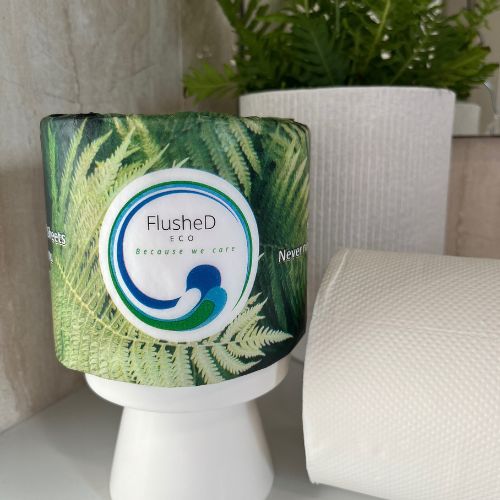
FlusheD ECO

